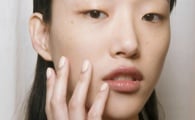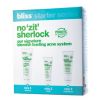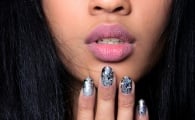Skin Care
The ABCs of AcneEverything you need to know about the causes of and treatments for acne, your most mystifying skin issue |
B Is for Bacteria Skin experts have long known that the Propionibacterium acnes (aka P. acnes) bacteria is responsible for pimples. But it turns out that your skin's type of P. acnes bacteria could be the root of your skin issue.
A study at the University of California Los Angeles indicated that P. acnes bacteria has three strains: two that occur in people with acne, and one that occurs in clear-skinned people. Experts believe that the latter strain actually prevents pimples.
In the future, expect to see acne treatments that increase the amount of "good" bacteria on skin while defeating "bad" bugs and (hopefully) nipping zits in the bud.
Your Rx: Until those high-tech products come out, look for acne washes and lotions meant to attack the P. acnes bacteria that causes acne (unlike acids, which work by drying pimples). Try Murad Acne Clarifying Cleanser, which clears pimples with antibacterial triclosan.
SEE NEXT PAGE: C Is for Cortisol
A study at the University of California Los Angeles indicated that P. acnes bacteria has three strains: two that occur in people with acne, and one that occurs in clear-skinned people. Experts believe that the latter strain actually prevents pimples.
In the future, expect to see acne treatments that increase the amount of "good" bacteria on skin while defeating "bad" bugs and (hopefully) nipping zits in the bud.
Your Rx: Until those high-tech products come out, look for acne washes and lotions meant to attack the P. acnes bacteria that causes acne (unlike acids, which work by drying pimples). Try Murad Acne Clarifying Cleanser, which clears pimples with antibacterial triclosan.
SEE NEXT PAGE: C Is for Cortisol































